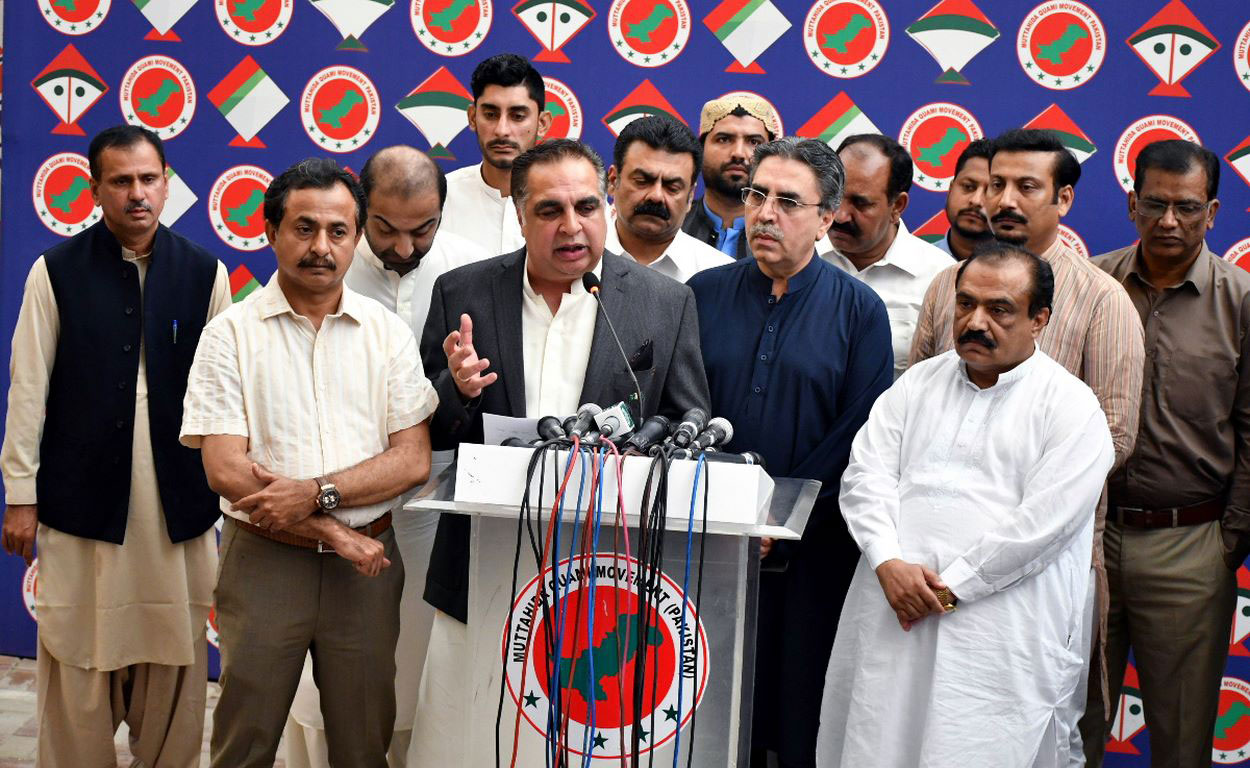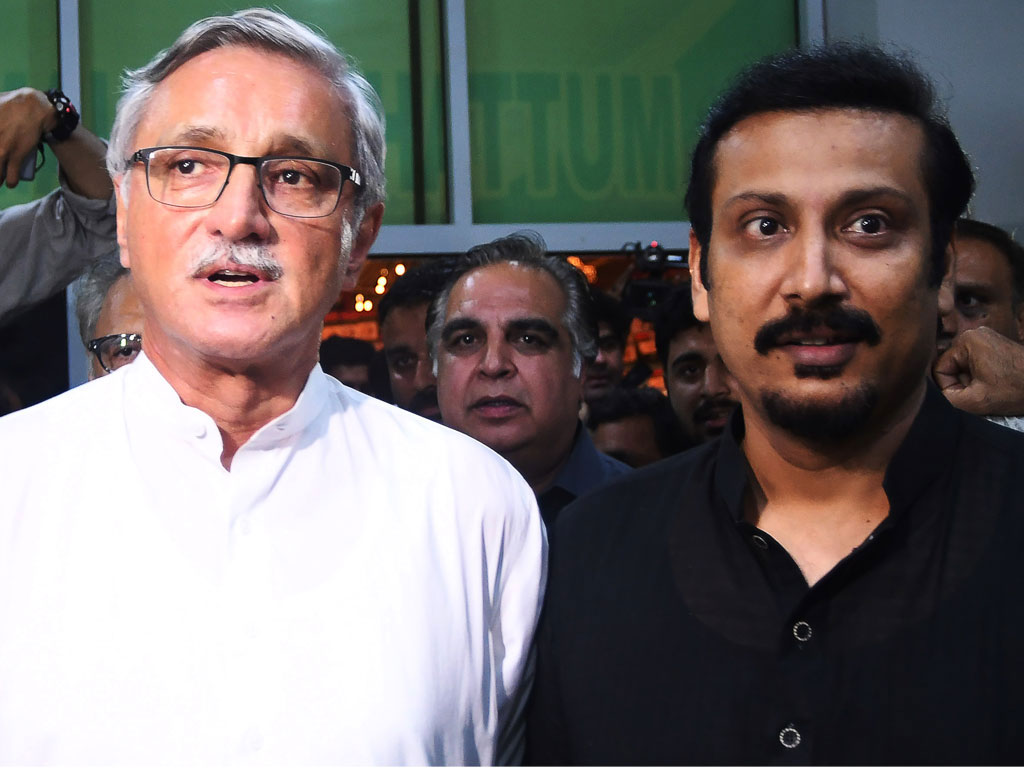Cracks within the organisational structure of Muttahida Qaumi Movement-Pakistan (MQM-P) have only grown wider, yet it has managed to push itself into relevance in the country's national politics.
Luckily, it has five seats in the Senate, seven in the national assembly and 20 in the provincial assembly of Sindh. Those numbers make it an attractive alliance partner for the ruling Pakistan Tehreek-e-Insaf (PTI), and came most in handy for the latter during elections for the president and prime minister. But MQM-P has a reputation of not being able to hold together alliances for too long.
In 2002 and 2008 the government of the day desperately needed MQM to steady its power bases, hanging by a thread. Then, in 2013, Pakistan Muslim League-Nawaz reached out to it for a coalition prior to the presidential elections. Each one of these unions ended prematurely and in acrimony.
The MQM-P, once a juggernaut force in Karachi, Pakistan's most important metropolis, has won every election in the city in the last three decades through a mix of genuine support from the Mohajir community, a strong local level party structure, and also with the use of violence and coercion. But in the July 25 general election, none of these factors worked. The MQM-P saw a drastic decrease in its share of parliamentary and provincial assembly wins. Interestingly, the party it is now working in tandem with — the PTI — is the same party that it lost most of its strongholds to.

For its seven parliamentary seats and support, the MQM-P has been rewarded with two federal ministries—law and justice and IT and telecommunications. It has even signed a nine-point memorandum with Imran Khan's PTI. One of the opening points of the MoU was to review the Karachi operation, spearheaded by a paramilitary force. But senior law enforcement officials, who asked not to be named, told Geo.tv that the operation will continue as it has till now and any deal cannot scrap it prematurely.
Separately, the lower ranks of both parties have already been caught griping about each other. Firdous Shamim Naqvi, PTI's Karachi president, admits that the alliance was forced on to members like him. "The partnership with the MQM-P was not our choice," he adds, "but we had to go for it since we needed the numbers to acquire simple majority in the national assembly to form government."
Then there are other indications that the alliance will be rupturing, soon after it was pieced together. In a video posted on social media, PTI MNA Fahim Khan and MPAs Raja Azhar and Adeel Ahmed can be seen loudly arguing with Ahmer Ali, the MQM-P-backed vice chairman of Korangi district, in his office over a garbage issue.

Regardless, the gains cut both ways. The MQM-P, which could have been pushed into oblivion post the July ballot, is also using PTI to bolster its importance and end its political isolation.
"The alliance has provided MQM-P relief and an opportunity to resolve its inner crisis," explains Dr Tausif Ahmed Khan, a Karachi-based political analyst.
"Since Pakistan People's Party (PPP) hasn't showed much interest in resolving the civic issues of Karachi, the PTI-MQM-P coalition is likely to help bring development projects from the federal government to the city." (The PPP holds majority and has formed government in the Sindh province).
Syed Aminul Haque, the spokesperson of MQM-P and an MNA, agrees. His party, he says, decided to support PTI because there was no other way to redress the issues faced by the people of urban Sindh.
"We believe that the recovery of missing persons, development packages and due resources can only be obtained through a working relationship with the federal government," he said.
Then, there are other rumours in the air. One claim is that the PTI is willing to give the MQM-P a walkover in the by-election, to be held in October, for the NA-243 constituency. The seat has been vacated by Prime Minister Imran Khan. For it, MQM-P is likely to field Faisal Sabzwari. On the other hand, PTI has not nominated any of its prominent leaders to contest the seat.
Yet, all of these could be momentary arrangements. In the long run, going by history, political pacts with MQM-P rarely survive.


